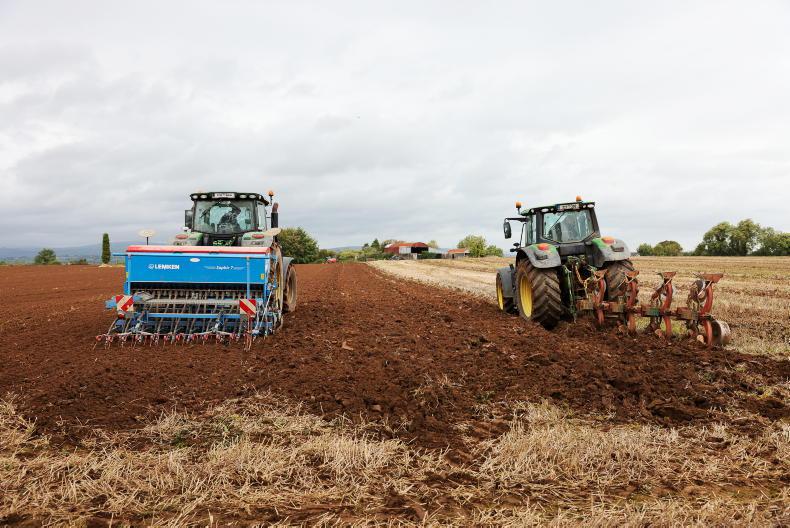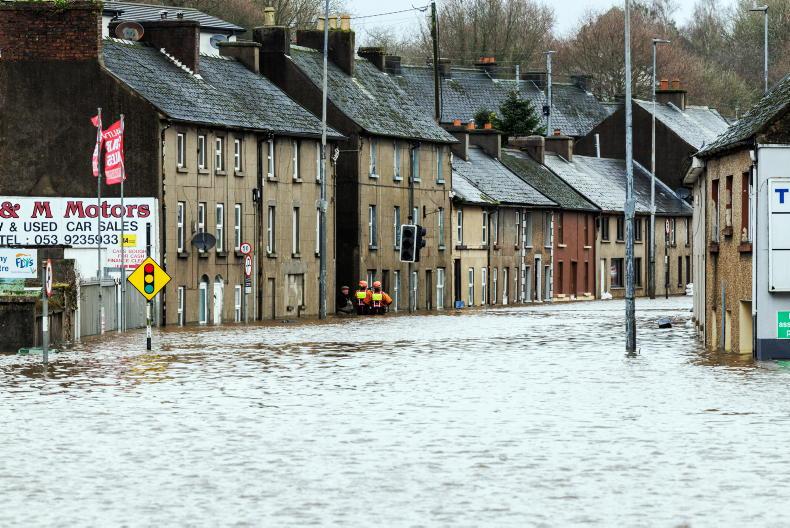Careless use of certain chemicals, such as MCPA, can lead to the contamination of drinking water, farmers were warned at a Teagasc meeting in Co Leitrim last week.
Andrew Boylan of Irish Water told farmers at the Bornacoola meeting that even the smallest drop of MCPA in a water stream could contaminate the supply.
Under the European Drinking Water Directive, the legal limit for pesticides in drinking water is 0.1µg/l (microgram per litre), which equates to one part per 10bn.
Staggering
“A single drop of MCPA in an Olympic-sized swimming pool with contaminate the water. That is staggering,” said Boylan.
With rushes thriving in areas of saturated soils, use of MPCA is usually higher in these regions.
“It only takes one instance of bad practice that can cause the problem,” Teagasc adviser Kieran Kenny warned farmers.
Irish Farmers Association representative John Winters acknowledged the problem, but emphasised farmers were not deliberately polluting the water supply.
“Nobody wants to damage the water, but they want to control the rushes. They have to deal with the Department of Agriculture to get payments and deal with regulations on spraying,” he said.
Locally concerns were raised about water quality in the Lough Forbes catchment area. In Longford in 2016, seven out of 11 samples tested were over the legal pesticide limit. This included the Lough Forbes catchment area.
MCPA and pesticide advice
Use non-chemical methods, such as topping, sward improvement or drainage to control rushes.Spot spray instead of broadcast spray where possible.Always read and follow label instructions.Be aware of the location of nearby water bodies and their proximity to the intended treatment area. A buffer zone of 5m from watercourses must be maintained when spraying MCPA-based products.Find out the location of any nearby drinking water abstraction points and ensure compliance with safeguard zones.Ensure application equipment is properly maintained and calibrated.Never fill sprayers directly from a watercourse.Perform chemical handling operations well away from watercourses and drains.Take great care to avoid spills.Minimise water volumes (rain and washings) on handling area.Do not spray if the grass is wet or if heavy rain is forecast within 48 hours after application.Do not spray during windy conditions. Read more
Rush spray ban looms
Fears of MCPA ban as chemical found in drinking water
Careless use of certain chemicals, such as MCPA, can lead to the contamination of drinking water, farmers were warned at a Teagasc meeting in Co Leitrim last week.
Andrew Boylan of Irish Water told farmers at the Bornacoola meeting that even the smallest drop of MCPA in a water stream could contaminate the supply.
Under the European Drinking Water Directive, the legal limit for pesticides in drinking water is 0.1µg/l (microgram per litre), which equates to one part per 10bn.
Staggering
“A single drop of MCPA in an Olympic-sized swimming pool with contaminate the water. That is staggering,” said Boylan.
With rushes thriving in areas of saturated soils, use of MPCA is usually higher in these regions.
“It only takes one instance of bad practice that can cause the problem,” Teagasc adviser Kieran Kenny warned farmers.
Irish Farmers Association representative John Winters acknowledged the problem, but emphasised farmers were not deliberately polluting the water supply.
“Nobody wants to damage the water, but they want to control the rushes. They have to deal with the Department of Agriculture to get payments and deal with regulations on spraying,” he said.
Locally concerns were raised about water quality in the Lough Forbes catchment area. In Longford in 2016, seven out of 11 samples tested were over the legal pesticide limit. This included the Lough Forbes catchment area.
MCPA and pesticide advice
Use non-chemical methods, such as topping, sward improvement or drainage to control rushes.Spot spray instead of broadcast spray where possible.Always read and follow label instructions.Be aware of the location of nearby water bodies and their proximity to the intended treatment area. A buffer zone of 5m from watercourses must be maintained when spraying MCPA-based products.Find out the location of any nearby drinking water abstraction points and ensure compliance with safeguard zones.Ensure application equipment is properly maintained and calibrated.Never fill sprayers directly from a watercourse.Perform chemical handling operations well away from watercourses and drains.Take great care to avoid spills.Minimise water volumes (rain and washings) on handling area.Do not spray if the grass is wet or if heavy rain is forecast within 48 hours after application.Do not spray during windy conditions. Read more
Rush spray ban looms
Fears of MCPA ban as chemical found in drinking water








SHARING OPTIONS